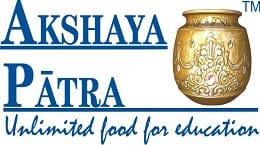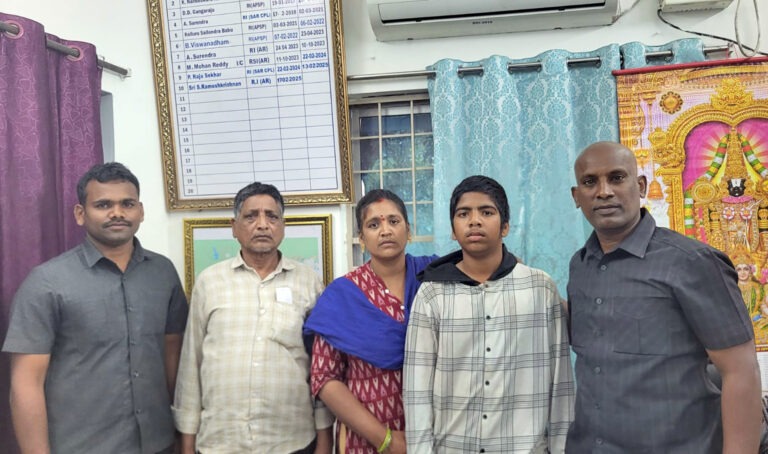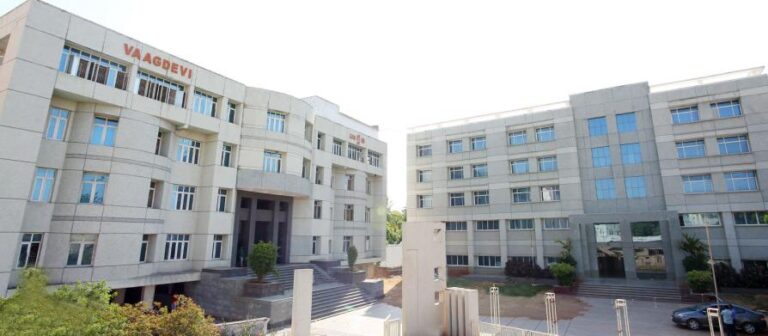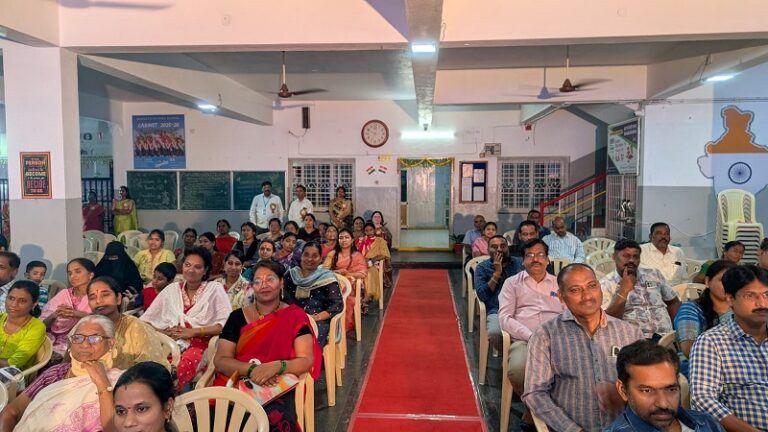
Authored Article by: Dr S.L.N.T.Srinivas
Domain Expert in Governance, Monitoring & Evaluation

Member, All India Authors Group

NCCT, Ministry of Cooperation, Govt. of India
KARIMNAGAR, NOVEMBER 25, 2025: In a rapidly developing India, the paradox of hunger among school children continues to affect education outcomes, health indicators, and long-term socio-economic growth. Among the institutions striving to address this challenge, The Akshaya Patra Foundation (TAPF) stands as one of the world’s largest and most impactful non-profit school meal providers. In Andhra Pradesh and Telangana, its work has become a silent yet powerful revolution—ensuring that no child is forced to choose between hunger and education.
With a blend of humanitarian vision, technological sophistication, and collaborative governance, Akshaya Patra has fundamentally reshaped the midday meal ecosystem across Telugu States. This article examines its journey, model, and most importantly, its measurable impact on learning, health, and social equity.
Akshaya Patra’s Vision: “No Child Shall Be Deprived of Education Because of Hunger”
The organisation’s core philosophy is deeply simple yet profoundly transformative:
feeding children is not just a welfare activity—it is a nation-building strategy.
By eliminating classroom hunger, Akshaya Patra aims to create an ecosystem where every child, irrespective of socio-economic background, can attend school, stay longer, learn better, and dream higher.
Expansion and Reach in the Telugu States
Over the last decade, Telugu States have emerged as one of the strongest operational zones for Akshaya Patra.
Key Cities Covered
- Andhra Pradesh: Visakhapatnam, Vijayawada, Guntur, Nellore, Kakinada, Tirupati, Anantapur
- Telangana: Hyderabad, Warangal, Rangareddy, Mahabubnagar
Daily Impact
Across these units, Akshaya Patra serves hundreds of thousands of children every school day in government and government-aided schools. In some districts, Akshaya Patra kitchens prepare 50,000–1,50,000 meals per day, highlighting the scale and capability of its operations.
The “Mega Kitchen” Model – Redefining Efficiency and Hygiene
Akshaya Patra’s operations in Telugu States represent some of the most advanced, technology-enabled food production systems in the world.
Key Features of Mega Kitchens
- Fully automated rice and sambar cooking systems
- High-capacity roti-making machines
- Stainless steel, contamination-free food handling
- Real-time hygiene and temperature monitoring
- ISO-certified food safety systems
- GPS-enabled delivery vehicles maintaining temperature integrity
These kitchens demonstrate how technology can serve humanity at scale, ensuring food is cooked, packed, and delivered fresh, safe, and nutritious.
Impact on Education and Social Development
- Improved School Attendance
Consistent meal availability motivates students to attend school regularly.
Independent studies across Andhra Pradesh and Telangana show an 8% to 12% increase in attendance in Akshaya Patra-supported schools.
- Reduction in Dropout Rates
For students from economically vulnerable families, the meal acts as a crucial incentive.
Schools witness a significant fall in dropout rates, especially among rural and disadvantaged children.
- Enhanced Learning Outcomes
Nutritious food improves:
- concentration levels
- cognitive functioning
- classroom engagement
- overall academic performance
Teachers frequently report greater attentiveness and energy levels among students.
- Strong Impact on Girl Child Education
The midday meal has encouraged more families to send girls to school.
improved retention of girl students
- reduced absenteeism
- enhanced participation in classroom activities
- Contribution to Child Nutrition
Akshaya Patra meals are designed in consultation with nutritionists, providing:
- essential macro and micro nutrients
- iron, protein, and vitamin-rich menus
- region-specific meal plans (dal-rice, roti-subji, khichdi, pulao etc.)
This significantly reduces nutritional deficiencies and supports children’s physical development.
A Model of Collaborative Governance
The success of Akshaya Patra in Telugu States is rooted in its partnership approach, involving:
Government Support
- supply of grains and financial assistance
- policy-level facilitation
- integration into the Mid-Day Meal Scheme
Akshaya Patra’s Contribution
- advanced infrastructure
- labour, logistics, and quality control
- continuous innovation
Corporate Social Responsibility (CSR) and Philanthropy
Many leading companies from Telugu States partner with Akshaya Patra, creating a public-private-people partnership model that has become a benchmark for social initiatives.
Broader Socio-Economic Impact
- Employment Generation
Each mega kitchen employs 100–300 individuals, empowering local communities and supporting livelihoods.
- Behavioural Change in Families
Daily meals reduce the financial burden on poor families, allowing them to allocate resources to healthcare, clothing, and growth-oriented needs.
- Social Equity and Inclusion
Children from all castes, religions, and communities share the same meal—promoting unity, dignity, and equality.
- Empowering Aspirations
When hunger disappears from a child’s life, dreams begin to grow.
Akshaya Patra is helping create a generation that is healthier, more confident, and more capable of building a better future.
Conclusion: A Silent Revolution with Loud Results
The Akshaya Patra Foundation’s work in the Telugu States is not merely a service—it is a transformative movement.
Every meal served carries a message:
No child should study on an empty stomach.
No child should be denied a future because of poverty.
Through innovation, compassion, and collective effort, Akshaya Patra is feeding more than bodies—it is feeding hope, dignity, and opportunity.
In classrooms across Andhra Pradesh and Telangana, millions of dreams continue to grow because a plate of food arrived on time. And that is not just charity—it is nation-building.




